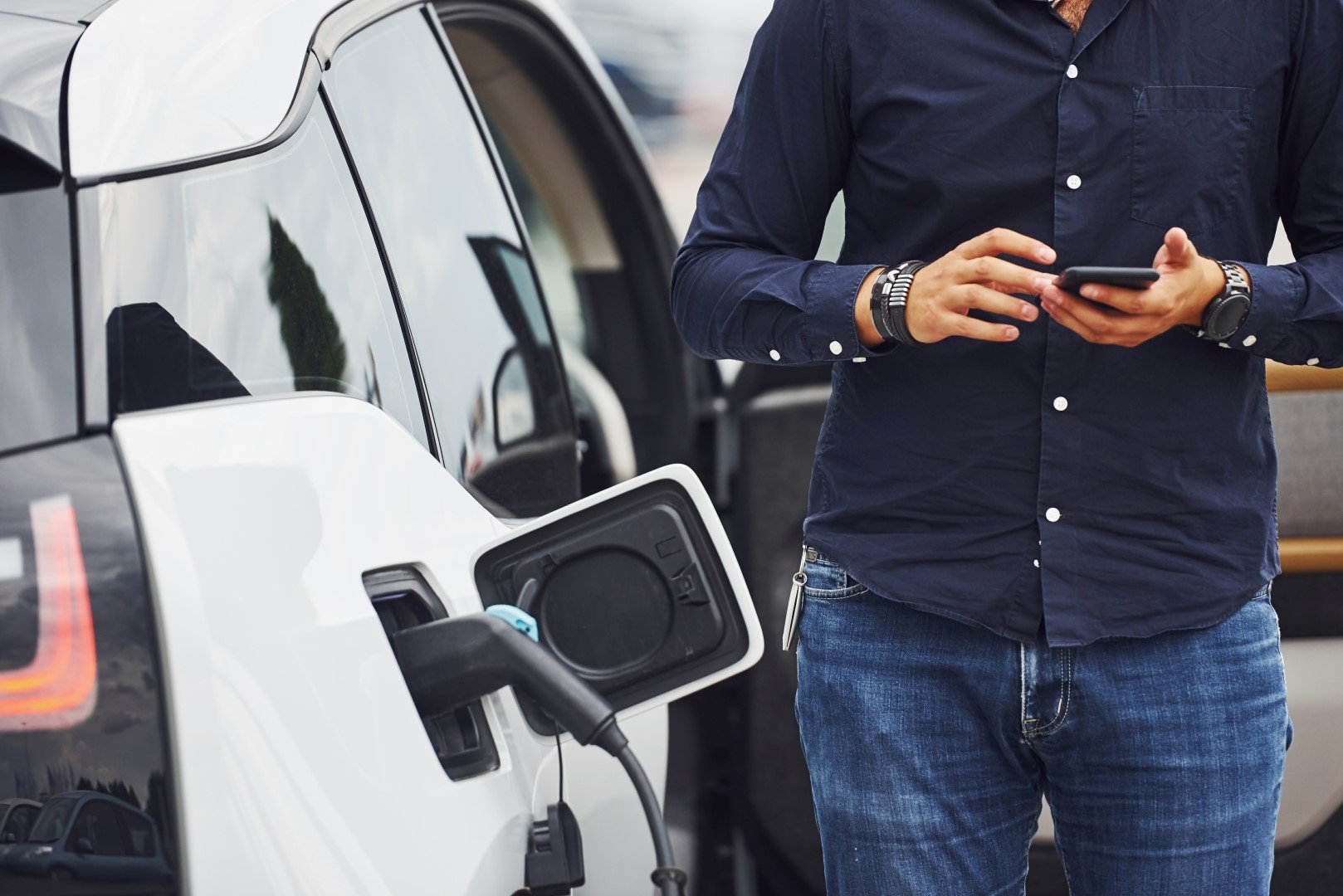There are a couple of ways that having an electric vehicle charger installed on your business premises can improve your bottom line. The selling point is what we call Return on Investment, or ROI.

One of the reasons that businesses are rushing to install electric vehicle chargers is the new stream of revenue that comes from providing charge to their customers’ EVs.
On the other hand, by enhancing your customers’ experience while on your premises with the added value of their EVs getting a boost, they may spend longer in time and spend more in money while with you. Or they just recognize the value and you get goodwill in return. In these cases, the payback is indirect.
In both cases, this represents an EV charger ROI.
Does every business have to make a profit on electric vehicle chargers?
In some cases a business may decide to provide electricity without a premium on their gross cost. They may see the payoff EV charger ROI in the form of enhanced service to their customers, resulting in a longer or more frequent patronage of their establishment.


Perhaps they have gambling facilities, so it pays to keep patrons happy and on the premises or for a high-end restaurant or cocktail bar, the profit on electricity is minor compared to the price of the food and beverages.
For a VIP customer, or if the business sells core products or services with premium prices, they may even provide the electricity free of charge.
How you can profit from charging your customers’ electric vehicles
However, many businesses choose to add a margin to what they pay their power provider and charge that to their customers. A charger increases exposure to a business, but there is also a windfall in the actual charging itself.
Generally, the net revenue from a charger is around $3 to $6 per hour.
Assuming the device is in use 10 hours per day, that’s $60 for the day. Assuming 300 days per year, our total means $18000 per annum per charger. These are all assumptions of course, but looks like it could be a winner once EV uptake really gets traction.
If you have access to renewable power, then you can generate even more revenue. For example, if you have solar panels on the roof of your business.
Of course, we can’t guarantee these figures. We cannot gild the lily and exaggerate financial benefits where they are possibly affected by factors out of our control, eg. customer clientele and traffic to the location. For some of the caveats, see the EV charger ROI SWOT analysis below.
However, keep in mind that ultimately we’re all using EVs because we want to do our bit for the environment.

What does a business pay per kWh to their provider?
Electricity rates are variable, however the cost is around $0.20 per kWh for a business. These rates may differ to what residential electricity customers pay.
Is the EV charger ROI calculated from AC or DC chargers?
In this example, we are talking about AC chargers, either 7kW or 22kW capacity. We are assuming that the most that can be delivered is 11kW per hour. Currently (forgive the pun!), no vehicles can charge greater than 11kW from an AC charger. This is a limitation of the internals of the EVs.
However, DC fast chargers can supply a lot more. One of these can charge at up to 350 kW, if a car is capable of handling it. That means that they can add 350 km of range in as little as 10 minutes of charging!
What do chargers usually bill per kWh?
The charge out rate varies between $0.25 to $0.40 per kWh.
What would be the life expectancy of a charger?
The ROI on an electric vehicle charger will also experience an impact from the life expectancy of a charger. In such a rapidly moving field, obsolescence may be an issue. However solid kit could last 10 years unless vandalism or user error wrecks a unit.
As EV chargers are relatively new, we cannot be sure how long they will last without some servicing. Typical components are Printed Circuit Boards (PCBs) and a contactor[1]. The plug socket may become worn with constant use and need replacing.
One EV charger manufacturer, Ocular, offer extended warranties of up to 5 years.
What are the risks and benefits of investing in an EV charger?
A partial SWOT analysis reveals that there are also internal and external factors which may impact your ROI as well.
Strengths:
What factors will help you beat the competition.
- cornering the market in a particular area that needs EV chargers
- having a clientele which drives EVs
Weaknesses:
Why your installation may not perform to an optimum level financially.
- poor location, with little traffic or a close competitor
- clientele that don’t drive electric cars
Opportunities:
These favourable external factors could lead to more EV use or greater demand for chargers.
- likely more favourable Federal governmental policy towards EVs including possible subsidies of charger installation
- rising price of fossil fuels such as petrol and diesel
- NSW grant scheme: (see here)
- increasing car use due to COVID
- more readily available energy from renewables, e.g. Snowy 2.0, solar, wind
- increased economies of scale as auto industry transitions to EVs
- potential increased availability of EVs equipped with bi-directional charging that can power your home.
Threats:
Some of these are a result of COVID or war related economic impacts.
- rising cost of fossil fuel generated electricity
- Emergence of competitive technologies, e.g. hydrogen powered vehicles (fuel cell electric vehicles or FCEVs)
- inflation and interest rate driven recession
Contact us today to find out what your EV charger ROI might be. Once that is done, we can provide you with some estimates as to what it might cost to install an electric vehicle charger.
[1] A high-voltage contactor, also called a high-voltage relay, has wide used in electric vehicles. It’s an electromechanical switching device with a coil that generates a magnetic force to mechanically operate an electric contact.



